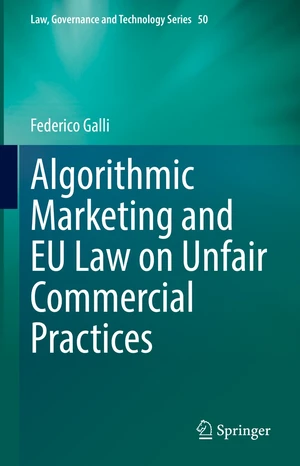Artificial Intelligence (AI) systems are increasingly being deployed by marketing entities in connection with consumersâ interactions. Thanks to machine learning (ML) and cognitive computing technologies, businesses can now analyse vast amounts of data on consumers, generate new knowledge, use it to optimize certain processes, and undertake tasks that were previously impossible. Against this background, this book analyses new algorithmic commercial practices, discusses their challenges for consumers, and measures such developments against the current EU legislative framework on consumer protection. The book adopts an interdisciplinary approach, building on empirical findings from AI applications in marketing and theoretical insights from marketing studies, and combining them with normative analysis of privacy and consumer protection in the EU. The content is divided into three parts. The first part analyses the phenomenon of algorithmic marketing practices and reviews the main AI and AI-related technologies used in marketing, e.g. Big data, ML and NLP. The second part describes new commercial practices, including the massive monitoring and profiling of consumers, the personalization of advertising and offers, the exploitation of psychological and emotional insights, and the use of human-like interfaces to trigger emotional responses. The third part provides a comprehensive analysis of current EU consumer protection laws and policies in the field of commercial practices. It focuses on two main legal concepts, their shortcomings, and potential refinements: vulnerability, understood as the conceptual benchmark for protecting consumers from unfair algorithmic practices; manipulation, the substantive legal measure for drawing the line between fair and unfair practices.
Price history
Sep 7, 2022
€55.42

